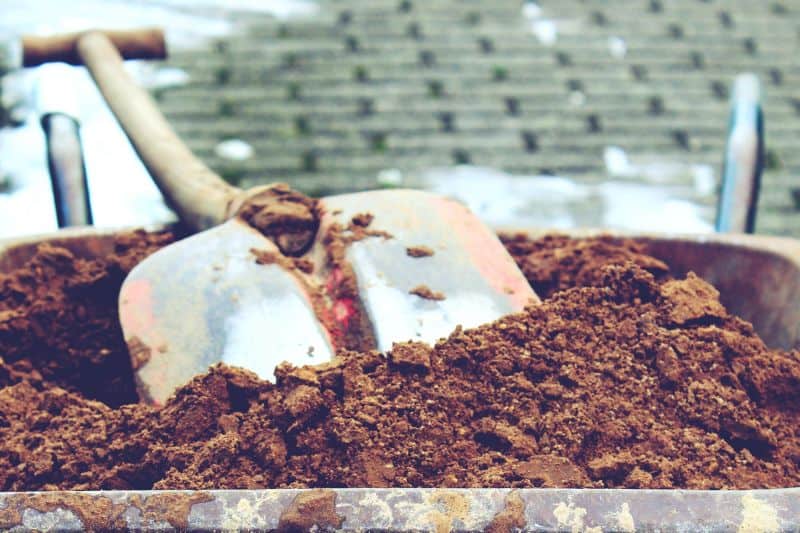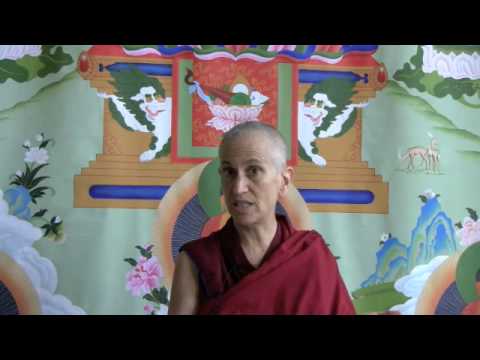Collective karma
Part of a series of Bodhisattva's Breakfast Corner talks on the Stages of the Path (or lamrim) as described in the Guru Puja text by Panchen Lama I Lobsang Chokyi Gyaltsen.
- Collective and individual karma
- Being careful about what groups we are a part of and how we think within those groups
Let’s talk about a few other aspects of karma. There is collective karma and individual karma. Individual karma is the karma that we create ourselves and collective karma is karma that we create but together with a group. For example, all of us came to the Abbey for a particular purpose and we are practicing the Dharma so we create karma together in the sense of practicing the Dharma together, and so that kind of enhances all of our individual karma.
If you’re in the military, then you have the karma there, the collective karma of people gathered together for a certain purpose. If you’re at a football game, you create some kind of collective karma with people gathered there for a purpose. Understanding this asks us to be mindful and discriminating in terms of which groups we decide to join because when we are part of a group and we agree with the purpose of the group, then we accumulate the deeds that anybody in the group does for that purpose, not making out exactly the same karma but something similar because we have gathered together for that particular purpose.
If you’re living in a state, like we live in Washington State, but we don’t agree with all the things that the government does, then we don’t accumulate the karma, because we disagree with a particular purpose. For example, we happen to live here. This is a state with a death penalty [that] is enforced. When they execute someone, in our heart we’re saying, “We don’t want this, we don’t want this to happen as citizens of this state, but we have no control,” so we don’t accumulate that karma. Whereas if you’re part of the group and you say, “Yeah, go get ’em,” then there’s some karma accumulated there.
What are the groups that we find ourselves in and for what purpose? It gives us some sense of who we might have been hanging around with in a previous life or what we might have been interested in in a previous life. For that reason, it’s important, whenever we are in a group, to have a very clear mind ourselves of what groups we’re associating with, whether we agree with their purposes and so on and so forth.
But even within a group of people…. [For example] the people who lived in New Orleans when Hurricane Katrina struck. They’re experiencing a result of a collective karma at that point, but within that experience–in that common result of being in a hurricane–then different people experience different results, and that’s according to whatever individual karma they accumulated in the past. Some people were rescued, some people had an easy time, some people had a difficult time. That’s according to the individual karma of the past, like the fact of experiencing the result of the hurricane together means that they had done some kind of action together in the past.
This is another interesting one to think about when you read the news and how it is that people experience certain results of certain things together and happen to be in that place at that time when that event occurs. All these kinds of things, very interesting to think about.
Venerable Thubten Chodron
Venerable Chodron emphasizes the practical application of Buddha’s teachings in our daily lives and is especially skilled at explaining them in ways easily understood and practiced by Westerners. She is well known for her warm, humorous, and lucid teachings. She was ordained as a Buddhist nun in 1977 by Kyabje Ling Rinpoche in Dharamsala, India, and in 1986 she received bhikshuni (full) ordination in Taiwan. Read her full bio.


